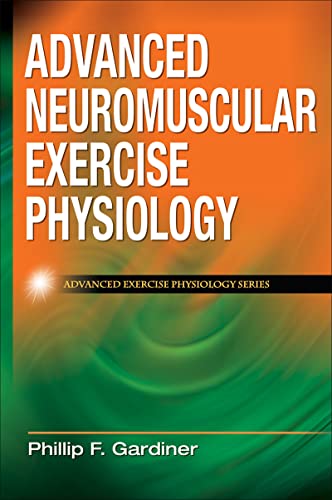Advanced Cardiovascular Exercise Physiology (Advanced Exercise Physiology)



Advanced Neuromuscular Exercise Physiology uses a mix of biochemistry, molecular biology, neurophysiology, and muscle physiology to provide a synthesis of current knowledge and research directions in the field. The first text devoted solely to the topic, Advanced Neuromuscular Exercise Physiology assists readers in identifying current directions in research and new avenues for exploration.
Recognizing the rapid changes occurring in the field of neuromuscular exercise physiology, the text provides readers with a foundation of knowledge while detailing the most recent findings. Though the text is written at an advanced level, the author succeeds at making the content accessible. Analyses of research findings and research applications are highlighted in special sidebars. Detailed illustrations and graphs assist readers in understanding research findings. Chapter summaries also help readers determine the key issues presented for each topic.
The author draws attention to a variety of important topics in the field, beginning with a discussion of motor unit types, muscle blood flow, and metabolic pathways in control of metabolism, including a special discussion of the effects of type 2 diabetes. Next, the topic of fatigue is discussed. The author explains possible peripheral and central contributors to fatigue. Chapters 6 and 7 focus on whole-body endurance training, including the effects of aerobic endurance training on the protein profiles of muscle fibers and on the central nervous system. Of particular interest is the applicability of research information to the exercise rehabilitation of individuals with compromised nervous system function, such as spinal cord injury, other trauma, and neuromuscular diseases. The final chapters are devoted to resistance training, including the phenotypic responses of muscles to isometric, slow isotonic, lengthening, and plyometric training. An overview of the effects of resistance training on the nervous system is offered along with clinical applications.
Within the dynamic field of neuromuscular exercise physiology, ideas of how nerves and muscles collaborate during acute and chronic exercise are continually evolving. Advanced Neuromuscular Exercise Physiology offers an authoritative perspective of current research in the field as it seeks to encourage discussion, further study, and new research directions.
Human Kinetics’ Advanced Exercise Physiology Series offers books for advanced undergraduate and graduate students as well as professionals in exercise science and kinesiology. These books highlight the complex interaction of the various systems both at rest and during exercise. Each text in this series offers a concise explanation of the system and details how each is affected by acute exercise and chronic exercise training. Advanced Neuromuscular Exercise Physiology is the third volume in the series.
| Country | USA |
| Brand | Human Kinetics |
| Manufacturer | Human Kinetics |
| Binding | Hardcover |
| ReleaseDate | 2011-03-30 |
| UnitCount | 1 |
| EANs | 9780736074674 |